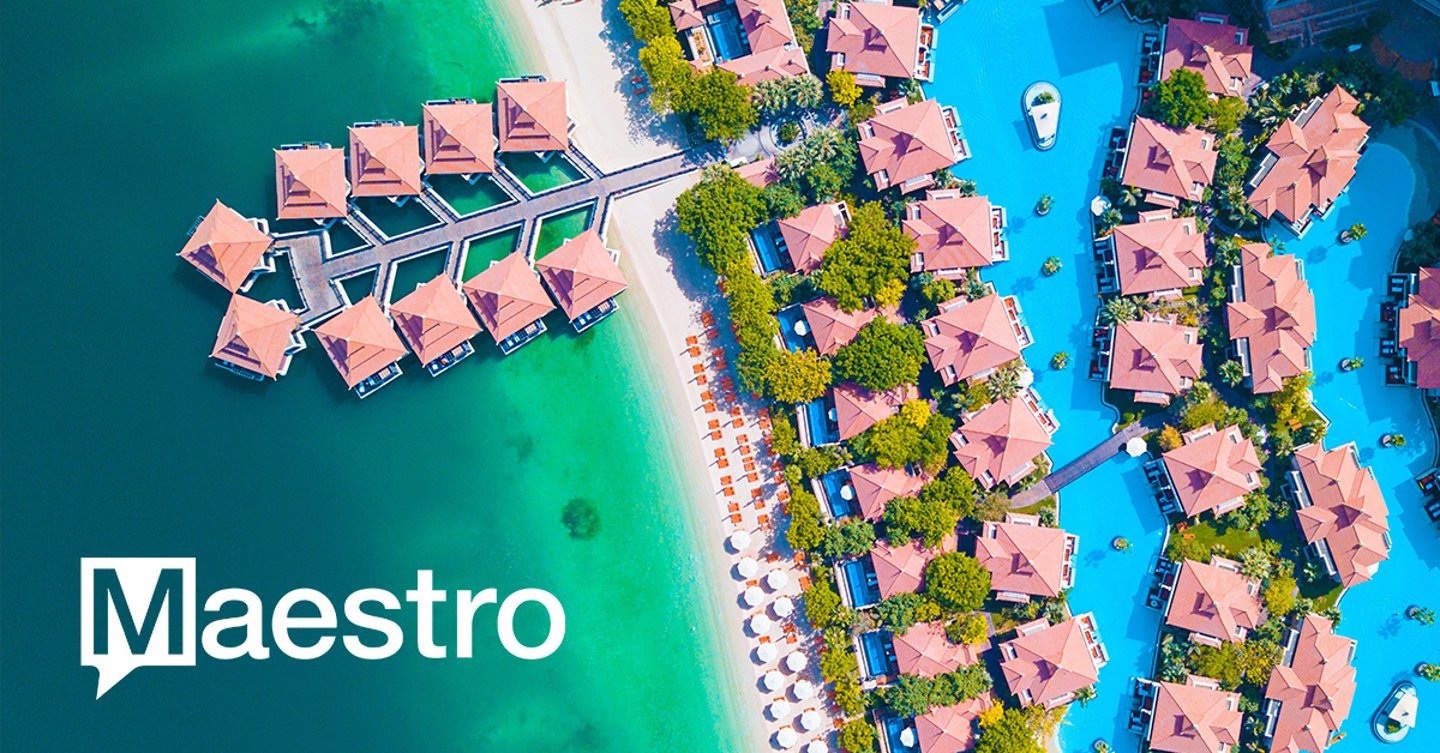How Are Top Independent Resort Operators Leveraging Their Tech Stack to Increase Revenue?
Hotels are preparing for a busy summer of leisure travel, and for resort hotels across the industry, success during this period will be determined by their ability to improve ancillary revenue from across their property. Considering the limited available labor in the industry, hoteliers need to ensure their property has the right technology in place to maximize the return on their revenue-generating goods and services—especially independent operators. Unfortunately, not every hotel PMS is set up to offer the same advantages in resorts compared to full or limited-service hotels. Determining these capabilities starts with understanding your property’s tech stack.
Getting to the bottom of these differences can sometimes be challenging for hoteliers, particularly due to the similarities many properties share across the industry. For example, a resort and a city-center hotel have the potential to share many offerings, and both may provide spa services to guests. However, these two properties have many differences, such as a resort’s access to a captive audience who often view resorts as destinations, and for a city center hotel, perhaps they need to consider the spa day guest.
These separate guest drivers command different requirements for their tech stack. Driving guests to your spa services requires a different strategy from maximizing revenue at a destination spa. To exploit these advantages, operators must identify clear goals for their technical capabilities and assess their tech stack from the bottom up.
Joining Forces
Many hotel operators have taken a reactive approach to technology investment, taking on new tools only once they become necessary for operations, or their competitive advantages become too substantial to avoid. However, this strategy often leaves hoteliers with a poorly planned technology approach that cannot accommodate new, valuable needs through either the feature set of the incumbent solutions or support of third-party integrations. To avoid this obstacle, hoteliers must rethink their tech stack before it becomes a barrier to their operating potential, and ensure they can take advantage of all that is available in the industry to stay competitive.
Operators across hospitality often find themselves caught in this technology-upgrade snare due to the prevalence of best of breed or specialized products, which have inundated the industry over the past decade or more. All-in-one technology options traditionally didn’t offer the breadth of the specialized products, but due to an increase in vendor consolidation taking place across the industry—as well as technology companies focusing on bridging those feature gaps and adopting a stronger approach to integrations through robust APIs—this gap has narrowed in recent years. As a result, hoteliers and resort operators are better positioned today to work with a one-stop shop for technology without making compromises.
For independent operators, working with an all-encompassing tech partner provides several benefits. First, it limits the number of relationships these operators need to manage to provide the analytics and integrations needed to offer a high-quality stay experience. Furthermore, these partners allow hotels to simplify their tech stack. When hotels align with the right property management system, overseeing many key elements of hotel operations on the same platform quickly becomes possible, simplifying training and daily operations. Lastly, when a tech stack is arranged to share information between departments more fluidly and efficiently through a centralized single guest profile database, resort hotels can capitalize on ancillary services and advanced pricing models using readily available consumer data based on an abundance of factors and preferences. Access to these capabilities is a game changer and a marketer’s dream, particularly for independent resorts looking to stand out in a crowded market.
Really Understanding Your Guest
Consumer data is helping hotels understand guests better than ever before and their perspectives throughout the booking journey from beginning to end. Hotels that have embraced a connected tech stack have been able to provide a more targeted stay experience for their guests at the best possible rate for the hotel, and much of the process is automated. These capabilities are no longer the domain of the big brands. Independent operators should ask themselves what their tech stack is doing with their data and whether or not its use is optimized or accessible at the granular level, ultimately driving repeat business.
Hotels today want to create a seamless travel and stay experience for guests, requiring streamlined operations behind the scenes, particularly in resorts. Standard limited and full-service hotels must ensure their tech stack allows for the hotel PMS to connect with its revenue management system, loyalty program, and global distribution system to start. Full-service resorts, however, need to ensure their analytics can tap into sales and catering, spas, amenities, and other departments to maximize the hotel’s cross-selling capabilities.
Most importantly, guests need to be able to access all of the above through digital purchases, which the hotel must also seamlessly fulfill. Capabilities such as Attribute-Based Selling are being introduced to the hotel experience, and advancements in cross-selling technology and strategies are creating new opportunities for independent hotels to exceed their revenue forecasts and guests’ expectations. The more hospitality learns about its customers, the more technology can help serve their needs.
ABOUT THE AUTHOR
Audrey MacRae is the Vice President of Maestro, the preferred cloud and on-premises PMS solution for independent hotels, luxury resorts, conference centers, vacation rentals, and multi-property groups. Maestro was first to market with a fully integrated Windows PMS and Sales & Catering solution and is continuing that trend with leading edge web and mobile based solutions encompassing all aspects of the operation. Platform and deployment independence present Maestro as an investment that will continue to grow and adapt as innovative technologies emerge.

